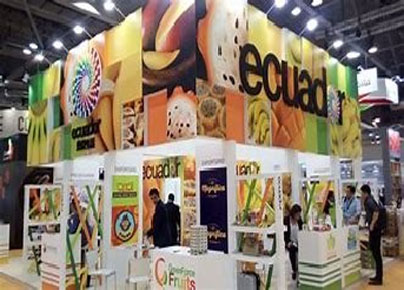Ecuador: Banana exporters in Berlin will insist on fair price payments
2024-02-02

On January 19, the Minister of Agriculture and Livestock (MAG), Danilo Palacios, said that the signing of contracts reached 58% of the hectares registered in that portfolio of State and urged producers and exporters to come forward to sign. However, ten days have passed, and according to Richard Salazar, executive director of the Association of Traders and Exporters of Banana of Ecuador (Acorbanec), signatures are at most 59%. These figures are close to 2023, when the exporting sector assured that 60% of the fruit left the country under contract. Still, the remaining 40% did so through the spot price, a marketing method governed by the market price and not stipulated in the Banana Law.
However, this does not exempt the fruit, with $ 3,422 million in exports from January to November 2023, from leaving the country driven by a spot price whose average in recent years has consistently been above the minimum support price (MSP) of the fruit, the base price for signing contracts.
This MSP for 2024 has also been a barrier that has prevented the export sector from closing all the contracts with its international clients, specifically with the Europeans who disagree with the increase of $ 0.35 per box in this year's price. Salazar said that the European market, especially supermarkets, is susceptible to these price increases but sees an opportunity to close these negotiations in the Fruit Logistica in Berlin between 7 and 9 February. The European Union imported 28.42% share of Ecuador's global banana exports in 2023, positioning itself as the leading export destination for the Ecuadorian fruit. "We are still negotiating with the supermarkets. We hope that during Fruit Logistica, at least on the European side," said the head of Acorbanec. He also expects that after these negotiations, the signing of internal contracts with producers in Ecuador can be expedited.
Meanwhile, to close contracts with the Europeans in Berlin, Salazar revealed that the main argument they will present to their clients is maintaining sustainability. "Above all, the costs have to be covered for expenses with the demands they ask of us: they ask to pay a living wage, they ask us to have certifications, etc., all of that has a cost. The idea is that this has a cost but generates a certain profitability to maintain sustainability," explained Salazar.
He regretted that Europe had been demanding all these requirements lately but was unwilling to pay more for the fruit. For this reason, Salazar recalled, the Ecuadorian banana sector demands shared responsibility through which "we send a product adapted to what they require, but on the other hand we aspire to pay a fair price".
For his part, José Antonio Hidalgo, executive president of the Association of Banana Exporters of Ecuador (AEBE), explained that each negotiation is independent and responds to the expectations of each exporter and each supermarket.
He pointed out that even though almost all the purchase and sale agreements with European supermarkets were already closed during the last quarter of the previous year for 2024, the fair is the opportunity to learn how the leading chains are dealing with marketing policies and what are the main concerns of consumers and see if they are willing to pay a fair price for the fruit. This is because the current business structure of supermarkets such as Aldi, Lidl, Edeka, Metro, Jumbo, Carrefour, Casino, and Tesco has led them to have subsidiaries in most European Union countries. In the case of the first two, they have opened branches in the United States during the last three years and are implementing a policy of further expansion.
Regarding the contracts already closed with supermarkets, Hidalgo acknowledged that they were down due to European customers refusing to pay more for the fruit this year. However, he clarified that the contracts were confidential and did not disclose values. He said that 43 public and private organisations from Ecuador will go to Berlin. Of these, three are AEBE, the Corporation for the Promotion of Exports and Investments (Corpei) and the Provincial Prefecture of Pichincha. Of the 40 companies, approximately 30 have banana exports as the focus of their business.
For Hidalgo, expectations are high. He indicated that the arrival of bananas from Ecuador exceeded 1.5 million tons, making it the best year since 2020. He added that although the import of bananas produced by the European Union from Latin America and Africa recovered in 2023, it is still less than 100 thousand tons to the volume that entered that market during 2020. Therefore, there is still a space that Ecuador, in the subject of bananas, can provide to that market.









